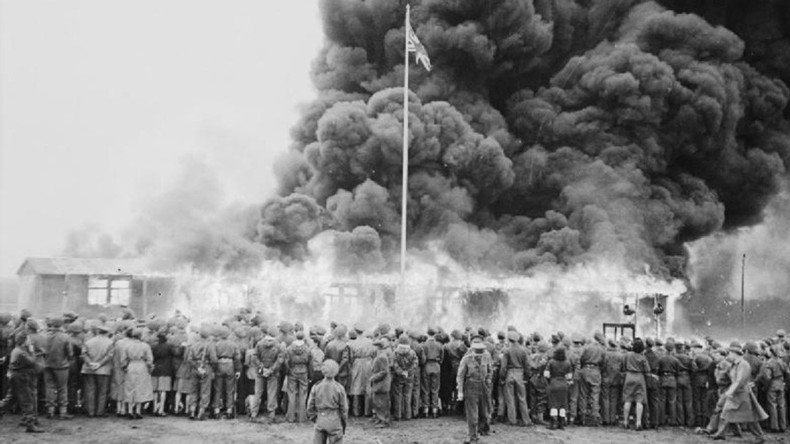Holocaust files: Britain withheld compensation despite appalling survivor testimonies

Survivors of the Holocaust and former prisoners of war were subjected to fierce questioning by British bureaucrats and refused compensation despite the savage treatment they endured, declassified files show.
The chilling records of hundreds of claimants were released by the National Archives on Thursday and include pages of testimony by those who survived horrific treatment at the hands of the Nazis.
The individuals were applying for compensation after the post-war German government had agreed to create a fund.
‘A Dutch Jew’
One applicant, Leon Greenman, was refused on the basis he was a dual Dutch-British citizen. Greenman had been captured in the Netherlands. His wife and child were gassed at Auschwitz.
He told Foreign Office officials his passport had been lost when Rotterdam was bombed, but was informed he should seek compensation from the Dutch authorities.
The Foreign Office told him it must make “certain enquiries which may take a considerable time” and wrote that they considered him a “Dutch Jew.”
‘Hero spy’
Tania Szabo, daughter of executed secret agent and George Cross recipient Violette Szabo, endured years of investigation before being awarded sums of around £1,000 (US$1,430) in 1966 and 1967.
Despite her Paris-born mother’s capture, torture and death in the service of Britain, officials appeared to doubt that her father had been British as claimed.
Austrian-born British national Johanna Hill was told to seek compensation from the government of Austria despite having been arrested for sheltering two British soldiers.
‘Great escape’
RAF squadron leader Bertrand James, who helped orchestrate the real-life ‘Great Escape’ from infamous prisoner of war camp Stalag Luft Three, was also initially refused compensation.
He spent five months in solitary confinement and recalled “inmates being beaten and worked to death … at the rate of 50 a day and their bodies burnt in bonfires, the smell of which not infrequently reached us.”
Despite this the committee appointed to look at his case said he had not experienced “the inhuman and degrading treatment of a concentration camp proper.”
He was forced to wait until 1968 before receiving £1,000 for his hardships.
‘Rampant cannibalism’
The archives also contain testimony from the only British survivor of the notorious Bergen-Belsen death camp.
Arrested the day before D-Day in Jersey, Harold Le Druillenec spent periods in three different concentration camps, ending his time as a prisoner heaving bodies into graves at Bergen-Belsen, where more than 70,000 people died.
Without food or water, inmates resorted to eating human flesh, he reported.
“Jungle law reigned among the prisoners; at night you killed or were killed; by day cannibalism was rampant,” he said.
“The bulk of Auschwitz had been transferred to Belsen when I arrived and it was here that I heard the expression ‘there is only one way out of here – through the chimney!’” he added, referring to the camp’s crematorium.
He was left with scabies, malnutrition and septicemia and lost his memories of pre-war life, but later helped war crimes investigators to convict fascists who ran the death camps.
Le Druillenec was eventually given around £2,000 compensation by the Foreign Office for his time in the death camps and his disabilities.
‘Understanding depravity’
In a statement, Eric Pickles MP, the UK’s Special Envoy for Post-Holocaust Issues, said: “It is absolutely crucial that these files are opened for public access.”
He said first-hand accounts of the death camps offered “an opportunity to deepen our understanding of the depravity of Nazi persecution, and understand more about how the systems functioned.”
Some 900 documents have been released so far with a further 3,000 due to be declassified in 2017.











